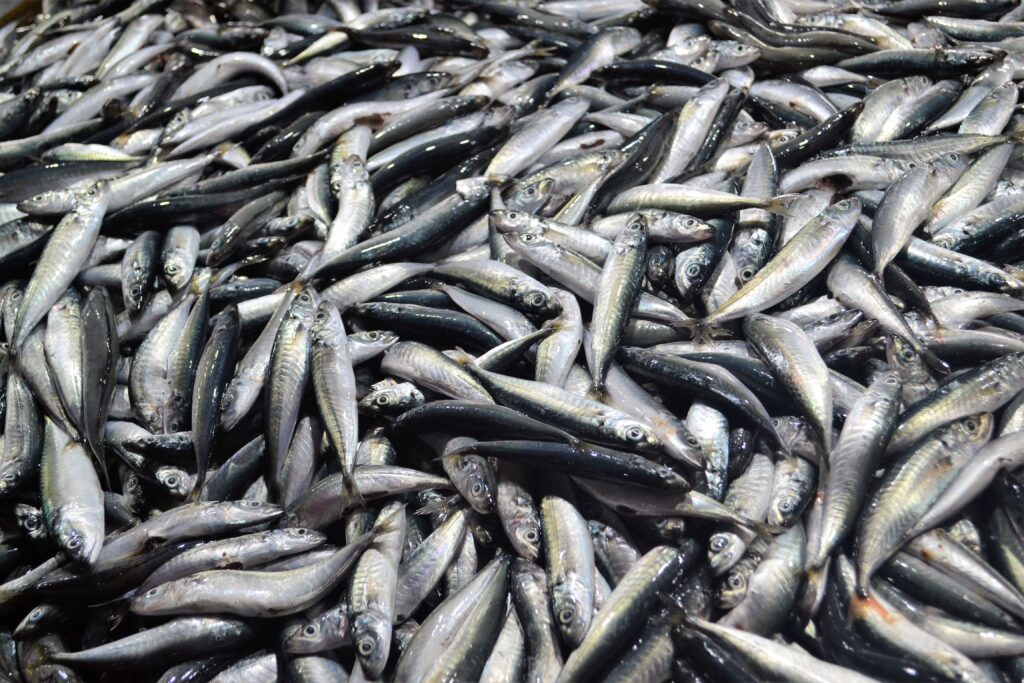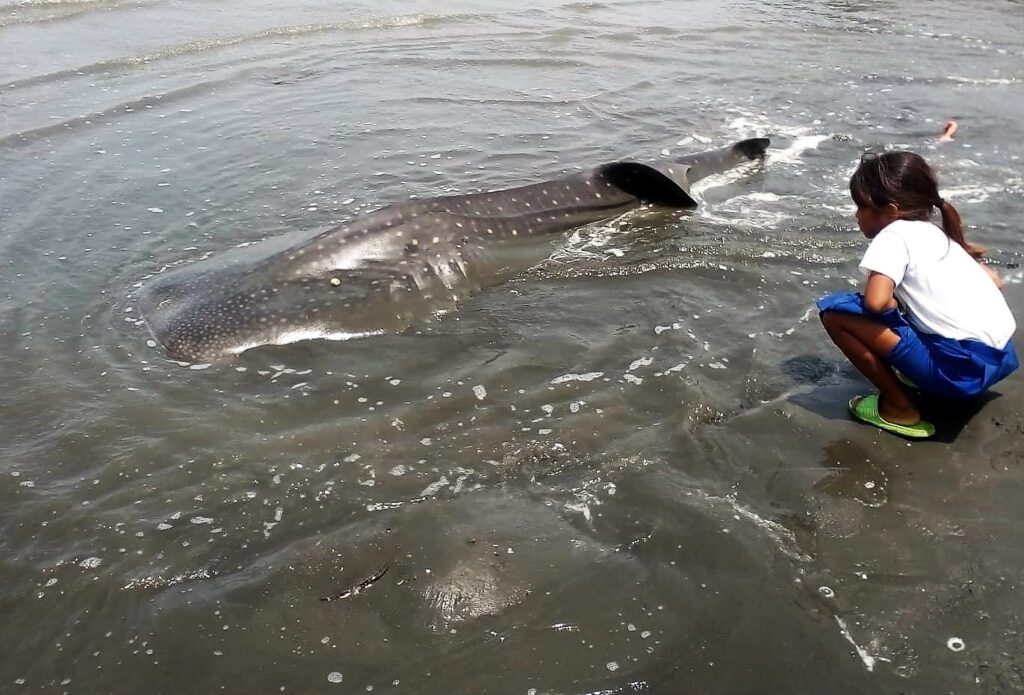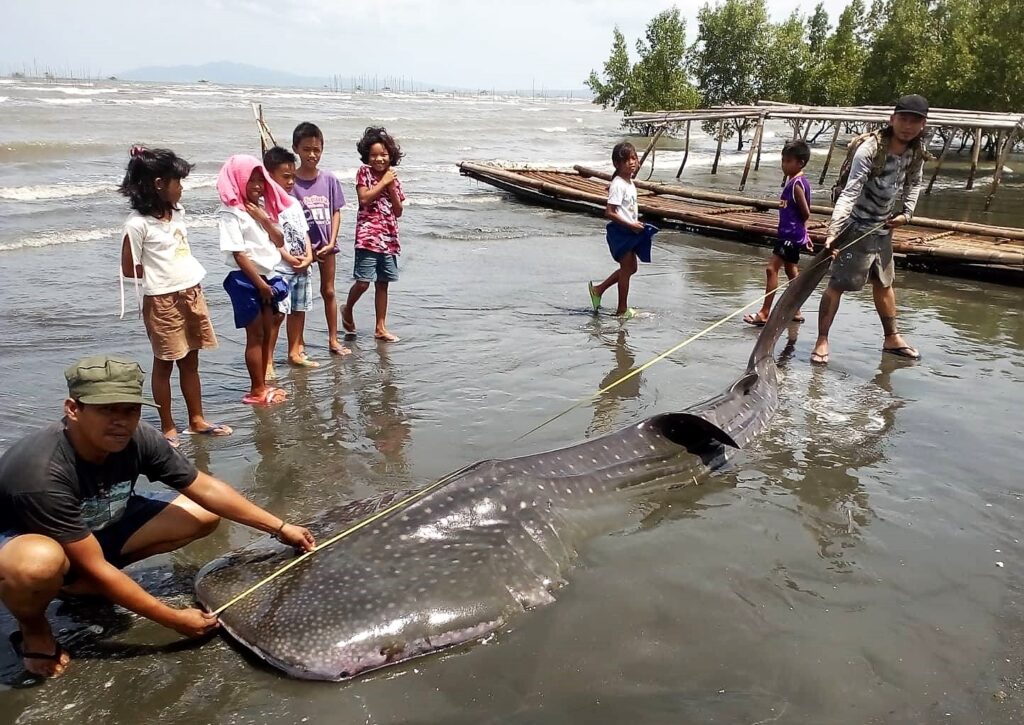SHARKS: GOING, GOING, GONE?
By Henrylito D. Tacio
Why should people be interested in sharks? Described as “highly feared apex predators of the sea,” they have been on this planet for some 400 million years, according to marine biologists. They possess replaceable razor-sharp teeth that grow in tens of thousands over a lifetime, which are “purely designed for killing and eating.”
Their presence in the open seas is enough to make people’s spine tingling and scamper for a place where they could be safe. The Steven Spielberg directed movie, Jaws, is a classic example. After the Hollywood blockbuster was released, people stopped going to the beach.

But wait, health professionals should not dismiss these marine creatures as something that don’t have use in medicine. In fact, researchers have been “increasingly focused on applying shark science to human health in cutting edge research that may lead to several discoveries in medicine,” to quote the words of a Pharmacy Times report.
Let’s take a closer look at them:
Wound healing: It is a common knowledge that sharks can heal quickly from wounds and resist infections. “By sequencing the shark’s genome, researchers are trying to understand which genes contribute to this quick-healing ability and translate this into the development of wound healing human medicine.”
Just recently, a graft device called Omnigraft Dermal Regeneration Matrix, has been approved by the US Food and Drug Administration (FDA). It uses a combination of silicone, cow collagen, and shark cartilage to treat life-threatening burns and diabetic foot ulcers.
Cancer: “Increasing research on the cancer-related immunity genes found in sharks could bring us closer to finding new ways to combat cancer in humans,” the report stated. There was a particular study where researchers found evidence that some shark immunity genes have undergone evolutionary changes that may be tied to these cancer-resistant abilities.

Hospital infections: Because of its roughness and certain properties, shark skin can deter organisms from attaching to the skin surface. A team of researchers have studied the use of shark skin to prevent hospital-acquired infections and minimize the need for antibiotics.
“The team… used a shark-inspired micropattern based on the microscopic surfaces seen on shark skin, making it difficult for bacterial attachment,” the report said. “Using the micropattern to treat surfaces in a hospital setting contaminated with methicillin-resistant Staphylococcus aureus reduced transmission by 97% compared to copper, a common microbial surface.”
Alzheimer’s disease: Some researchers are investigating whether shark antibodies may provide a new method in fighting Alzheimer’s disease and other diseases. These researchers are finding a way “to attach therapeutic proteins to shark-derived antibodies, which could allow treatments to be transferred across the blood-brain barrier into the brain where they bind to a drug target.”
Fibrosis: In Australia, researchers have developed a drug that mimics part of a shark’s immune system to treat idiopathic pulmonary fibrosis. The drug was inspired reportedly by an antibody found in shark blood.
Dwindling population
As the apex predators of the oceans, sharks keep other marine animals in healthy balance and regulate the oceans. “Their presence is an indicator of a healthy ocean with abundance of prey, including fisheries,” says Dr. Theresa Mundita S. Lim, executive director of the ASEAN Centre for Biodiversity, in an exclusive interview. “Without them, there will be no early warning signs of impending impacts that could ultimately affect human survival.”
According to Dr. Lim, sharks keep the population of certain species in check thus keeping the fish stocks robust. In addition, they help in preventing the spread of diseases. “They naturally preyed upon the weakest and the ones in poor health,” she explains.
Oceanea, an ocean conservation and advocacy organization, also adds: “Through the spatial controls and abundance, sharks indirectly maintain the seagrass and coral reef habitats.” Both coastal ecosystems are needed for fish and other marine creatures to thrive.
But despite all these, the population of sharks in the open seas are fast dwindling. “Though potentially dangerous, shark attacks are extremely rare – and humans annually kill from 70 to 100 million sharks yearly for their liver, meat and of course their fins,” deplores Gregg Yan, a conservation advocate and director for communications of Oceana Philippines. “They have far more reason to fear humans than we do them.”
A recent scientific paper published in Marine Policy has proven this. The study, conducted by researchers from the University of Hong Kong, the Sea Around Us initiative at the University of British Columbia and WildAid, reveals that fishing pressure on threatened shark populations has increased dramatically.
Data from the Sea Around Us shows that the global shark catch has more than doubled to 1.4 million tons the in the last six decades, with the overexploitation “threatening almost 60% of shark species, the highest proportion among all vertebrate groups,” said lead author Professor Yvonne Sadovy, of the Swire Institute for Marine Science at the University of Hong Kong.

Over the past several years, dozens of countries around the world have adopted bans on shark fishing. “However, given the prevalence of illegal, unregulated, and unreported fishing, and the fact that most countries still do not ban finning, the practice continues globally,” WildAid said in a press statement.
Faced with challenges such as poor enforcement, accidental catch, inadequate laws, and criminal activity, the researchers call for adopting the precautionary principle and halting the consumption and trade in all shark fin.
On the brink
In fact, some species of sharks are now facing potential extinction. “If you go to any reef around the world, except for those that are really protected, the sharks are gone,” said Dr. Ransom Myers, a world-renowned American marine biologist and conservationist. “Their value is so great that completely harmless sharks, like whale sharks, are killed, for their fins.”
Sharks are the main ingredient for shark fin soup, a prestigious dish among ethnic Chinese both in China and abroad, served at wedding banquets, Lunar New Year celebrations, and high-end restaurants.
“The demand among an expanding middle class in places like Taiwan, Vietnam and Indonesia is driving unsustainable fishing in unmanaged fisheries of less economically developed countries,” WildAid deplored.
Dr. Myers has warned that overfishing of sharks could lead to collapse of Atlantic cod populations and also noted that 90% of the world’s bluefin tuna and other large predatory fish have already disappeared. The outlook for sharks and large predators is not good.
The future looks bleak. There are over 1,000 shark species that swim the world’s oceans, according to Save Sharks Network Philippines (SSNP). With 200 species, the Philippines has earned a unique position globally in shark biodiversity. It ranks fourth after Australia, Indonesia, and Japan.
Data submitted to the Food and Agriculture Organization (FAO) of the United Nations said that between 2000 and 2008, the Philippines reported exports of dried and salted shark fins (averaging 36 tons per year) and shark liver oil (19 tons per year).
Predatory Assets
Like human beings, sharks are not created equal. “There are different kinds of sharks,” Dr. Lim says. “The carnivorous sharks, like the tiger sharks, great whales, bull sharks, are considered apex predators.”
But there are sharks which don’t eat meat. “The largest sharks are harmless and are plankton-feeders,” Dr. Lim says, referring to whale sharks and megamouths. Like the apex predators, these large sharks are also good indicators of abundant food supply. “The presence of krills and copepods that these sharks feed on also attract marine species that are considered important to fisheries,” she says.
Aside from ecological benefits, sharks have also been proven to boost local economies through sustainable tourism activities. The most noted shark-based tourism in the country are those in Donsol in Sorsogon and Malapascua Island in Cebu.
“You can (benefit from) live sharks over and over again throughout their lifetime. But once they are dead, you can use them only once and nothing more,” says Dr. Arnel “AA” Yaptinchay, founder and director of Marine Wildlife Watch of the Philippines.
In addition, sharks can also be a source of food of those living near the seashores. “In greater numbers, sharks and ray can be part of the diet of coastal communities, as it was in the olden days when they have not yet been overhunted, and the oceans were less polluted,” Dr. Lim says.
Sharks have to be saved from disappearing in the country’s waters. “Protecting sharks in the Philippines is in our best interest,” SSNP said in a statement. “Their presence is beneficial to both our economy and ecosystems.”
A recent report from the World Wildlife Fund for Nature (WWF) has classified the whale shark and manta rays as protected species that are banned for export, there is no protection for them from the impact of their habitats. “
A 2015 study found that up to nearly 20% of key marine predators in the Mediterranean had plastics in their bodies. Another study from South Africa, where sharks are still plentiful, found that over 7% of the tiger sharks examined had some sort of plastic in their stomach. And just as worryingly, up to 33% of shark fins sampled in Chinese cities were classified as unsafe for human consumption based on the levels of methyl mercury in them.
Some reports suggest that by 2050, there will be more plastics than fish in the world’s major seas if things go on as they are. Major celebrities like Sir David Attenborough echo the same warning. Attenborough labelled rising global temperatures and plastic as the biggest concerns for our oceans.
“We could actually do something about plastic right now,” he said in an interview with the Guardian newspaper. “We have a responsibility, every one of us,” he said. “We may think we live a long way from the oceans, but we don’t.”

